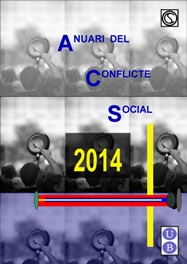24. The European economic crisis and the new political perspectives
Keywords:
new liberalism, democracy, welfare state, new social movements, crisisAbstract
Some of the aspects of globalization have been the explosive growth of financial flows and a decrease in the levels of employment protection and tin he quality of public services. Traders are the protagonists of globalization but does not control its evolution. The economic crisis started in 2008 is accompanied by a crisis of representative democracy. Neoliberalism imposes a model that relies less and less on government policies. The system does not recognize borders and tries to impose and consolidate around the world. New social movements seem to be the only ones to oppose this system. Is at stake is the future of our society.
Downloads
Published
How to Cite
Issue
Section
License
AUTHORS RETAIN COPYRIGHT. CREATIVE COMMONS
The authors who publish in this journal agree to the following terms:
- The authors retain the copyright and grant the journal the right of first publication of the work, which will be disseminated following the Creative Commons Attribution license.
- Authors are free to establish additional independent contractual agreements for the non-exclusive distribution of the version of the work published in the journal (such as publication in an institutional or thematic repository, their personal website or a book), provided have your initial publication in this journal recognized.
- Texts will be published under a Creative Commons Attribution License that allows others to share the work, provided they include an acknowledgement of the work’s authorship, its initial publication in this journal and the terms of the license.
- Self-archiving of pre-print and post-print versions is allowed.
Privacy statement
The email addresses and names entered in this publication will be used exclusively for the purposes declared and will not be used for any other urposes or made available to third parties.







